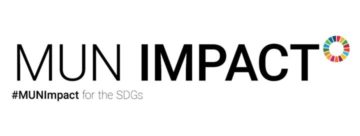BY MEENAKSHI MARIAPPAN, STAFF REPORTER
For a session centred around youth empowerment and sustainability, our speaker for the day was Eric Johnson, one among the youth himself. Currently pursuing a Master of Science in Nonprofit Management at Columbia University, Johnson has extensive experience in empowerment, be it from a legal standpoint, in the case of refugees, or focussed on the environment. From the get-go, the participants were enveloped in a warm atmosphere created by Johnson to facilitate conversation and welcome any youth voices present.
As reiterated by Johnson, the world is home to “more youth,” and we “need to give them a voice.” The UN Sustainable Development Goals and the 2030 Agenda form an intersectional framework, and youth are an essential part of the agenda’s advancement. The session, following from its title, aimed to answer the question “Sustainable How?” through an interactive conversation. Johnson’s first question to participants was: What does sustainability mean to you? This led to further questions, such as “ What type of renewable energy do you like?” sparking interesting contributions from participants.
The highlight of the session, as it ended on an insightful note, was when Johnson shared a TED Talk for participants to watch titled ‘Climate justice can’t happen without racial justice’ given by Member of Parliament David Lammy; the video can be viewed here: https://youtu.be/EkIpeO1r0NI. The essence of the video revolved around the intersectionality of various aspects, as Johnson similarly stressed upon previously. Following from the title of the video, one may ask, how? As attested by Lammy, “people of colour consistently lie at the bottom of the housing, educational and employment ladders.” And so, these are the people who breathe in relatively more toxic air compared to the rest of the population, the people who are prone to respiratory diseases, and these are the people who are more likely to bear the brunt of the climate crisis. With this being said, participants were able to see the Black Lives Matter slogan “I can’t breathe,” in an entirely new light.
Moreover, as the countries which contribute least to the climate crisis, most of which were previously exploited, seem to suffer the most, this hinted at a “pattern of suffering with a long history,” with the climate crisis being interpreted as “colonialism’s natural conclusion.” Why are a majority of leading climate change activists white? As Johnson touched on the representation of the black community, the video showed participants how the already underrepresented are now being cropped out of leadership positions in environmental organisations, amongst others. It is time that people of all races, religions, ages come together to recognise that “climate justice is linked to racial justice, social justice, and intergenerational justice too.”
The video served as an extremely powerful conclusion to the session, as participants were able to understand the resonating message that the climate movement is not merely about protecting the environment. Rather it is about caring for the people around us, globally, irrespective of their bank account or the colour of their skin, and annulling inequalities. In Johnson’s words, it is about “paying it forward, and creating a space for everyone to breathe the fresh air.”
